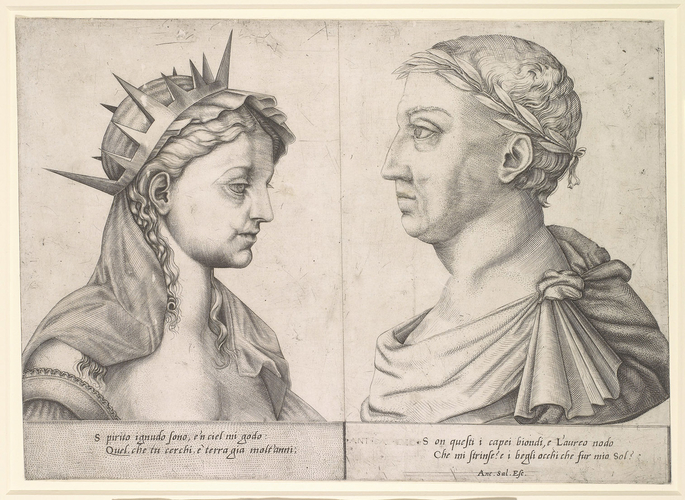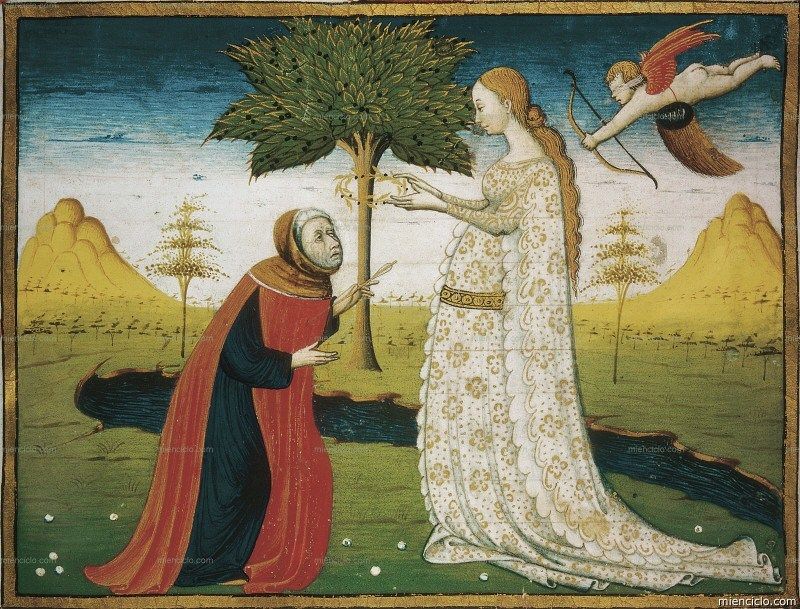The role of women in our society has long been a topic of discussion. Though it is much more common to see examples of liberated women in today’s literature and in all respective forms of media, this wasn’t always the case. Female writers were often excluded from the scene, which meant that their stories were usually told through the lens of men. This is part of the reason why there was such a profuse amount of dependent and submissive female roles in literary work. However, there is always an exception to every rule; three Italian writers, who aside from contributing to the Renaissance, also displayed forward-thinking in their writing. Dante Alighieri, Francesco Petrarca, and Giovanni Boccaccio have all credited women for being their main source of inspiration. They have also presented strong examples of female characters which reinforces the idea that women have a right to occupy spots in literary spaces.
In The Divine Comedy, Alighieri takes us on a journey through the different realms that are commonly referred to as the Christian afterlife: Inferno, Purgatorio, and Paradiso. When Dante the pilgrim wakes up in a dark forest, right beyond the entrance of Inferno, he is visibly frightened and in need of some guidance. That is where Beatrice steps in; his savior in the story, but also his muse in the real world. She watched as Dante strayed further away from his faith, and wanted nothing more than to guide him to the light. She sends Virgil to protect Dante while he makes his way through Hell and witnesses all the atrocities first-hand. At one point, Dante confesses, “Oh full of pity she who has helped me! and you courteous, who have quickly obeyed the true words she offered you! Your words have so filled my heart with desire to come with you, that I have returned to my first purpose” (Inferno, Canto 2). In other words, Dante is attributing his will to Beatrice’s generosity and kindness. Perhaps the most interesting thing about Beatrice’s role in The Divine Comedy, is that Dante characterizes her as a religious figure rather than a normal lover. She has an undisputed divine nature throughout the story and plays such an important role in the pilgrim’s salvation (Beatrice: Inspiration, Divine Love, and the Key to Salvation). Although her moments in the Comedy were few and far between, she strikes me as one of the most notable figures in the entire story and the antithesis of a woman who relies on a man.
In Il Canzoniere, Petrarca professes his love for his muse with hundreds of poems. The vast majority of these poems are written in sonnet form and they detail an array of emotions, from when he first fell in love with Laura to when she passed away. In sonnet 90, for example, he describes her appearance to us in a thoughtful manner and portrays her as a source of light in his life. He says, “She’d let her gold hair flow free in the breeze and whirled it into thousands of sweet knots … The way she walked was not the way of mortals but of angelic forms, and when she spoke more than an earthly voice it was that sang.” Though it was not uncommon for Italian poets to dedicate sonnets for the women they admired, Petrarca’s love for Laura was especially haunting because his passion for her only multiplied after she passed. He expressed his heavy feelings about her death in sonnet 319, where he says that his days seem to just pass him by now that she’s gone. Furthermore, he calls the world “wretched” and “arrogant” for taking Laura away and leaving him in a broken state. It’s evident that Petrarca thinks very highly of Laura, but more than anything, I think this also communicates just how much he values the women in his life. After her death, Petrarca had a tough time getting by because of how lost and abandoned he felt. When her soul moved on to the Heavens, as he said, a piece of him died too. Without her, he felt vulnerable and incomplete.
Boccaccio’s The Decameron was written at the height of the Bubonic plague. Death and grief overtook all of Europe as sickness spread from one person to another. One of the main reasons he wrote The Decameron was, of course, for entertainment. As you could imagine, humor and joy were very scarce given the circumstances. However, Boccaccio also mentions in the preface of The Decameron, that he’s dedicating this work to women. He writes, “the ladies just mentioned will, perhaps, derive from the delightful things that happen in these tales both pleasure and useful counsel, inasmuch as they will recognize what should be avoided and what should be sought after. This, I believe, can only result in putting an end to their melancholy.” Simply put, he hopes that the women reading his work will take notice of the good and the bad, and possibly apply it to their own lives. Boccaccio also gives women the opportunity to recount the parables in The Decameron, as well as lead them. In a lot of the stories, there’s a common theme of men who try to outsmart their female counterparts, to no avail. With this, he implies that women can in fact be superior in terms of skill, which is something that has long been missing in fictional and historical texts alike (Kulshrestha).
To conclude, imbedded in these three written pieces by revolutionary contemporaries are high commends for the women who make them feel complete. Whether it’s done by depicting them as religious figures, describing how lost they feel without them or dedicating their work to them, these men gave women a leading role in their stories during a time period where women were seen as subordinate to men.
Work Cited
Alighieri, Dante. “The Divine Comedy of Dante Alighieri: Inferno” ProQuest eBook Central, 29 Feb. 1996, https://ebookcentral.proquest.com/lib/ccny-ebooks/reader.action?docID=693941
“Beatrice: Inspiration, Divine Love, and the Key to Salvation” Digication EPortfolio, Boston University, 24 Oct. 2010, https://bu.digication.com/wr100B1_challenerjn/Final_Draft2
Petrarca, Francesco. “Il Canzoniere”
Boccaccio, Giovanni. “The Decameron”
Kulshrestha, Sujay. “Giovanni Boccaccio’s ‘the Decameron’ and the Roles of Men and Women.” Inquiries Journal, 1 Dec. 2010, http://www.inquiriesjournal.com/articles/344/giovanni-boccaccios-the-decameron-and-the-roles-of-men-and-women







